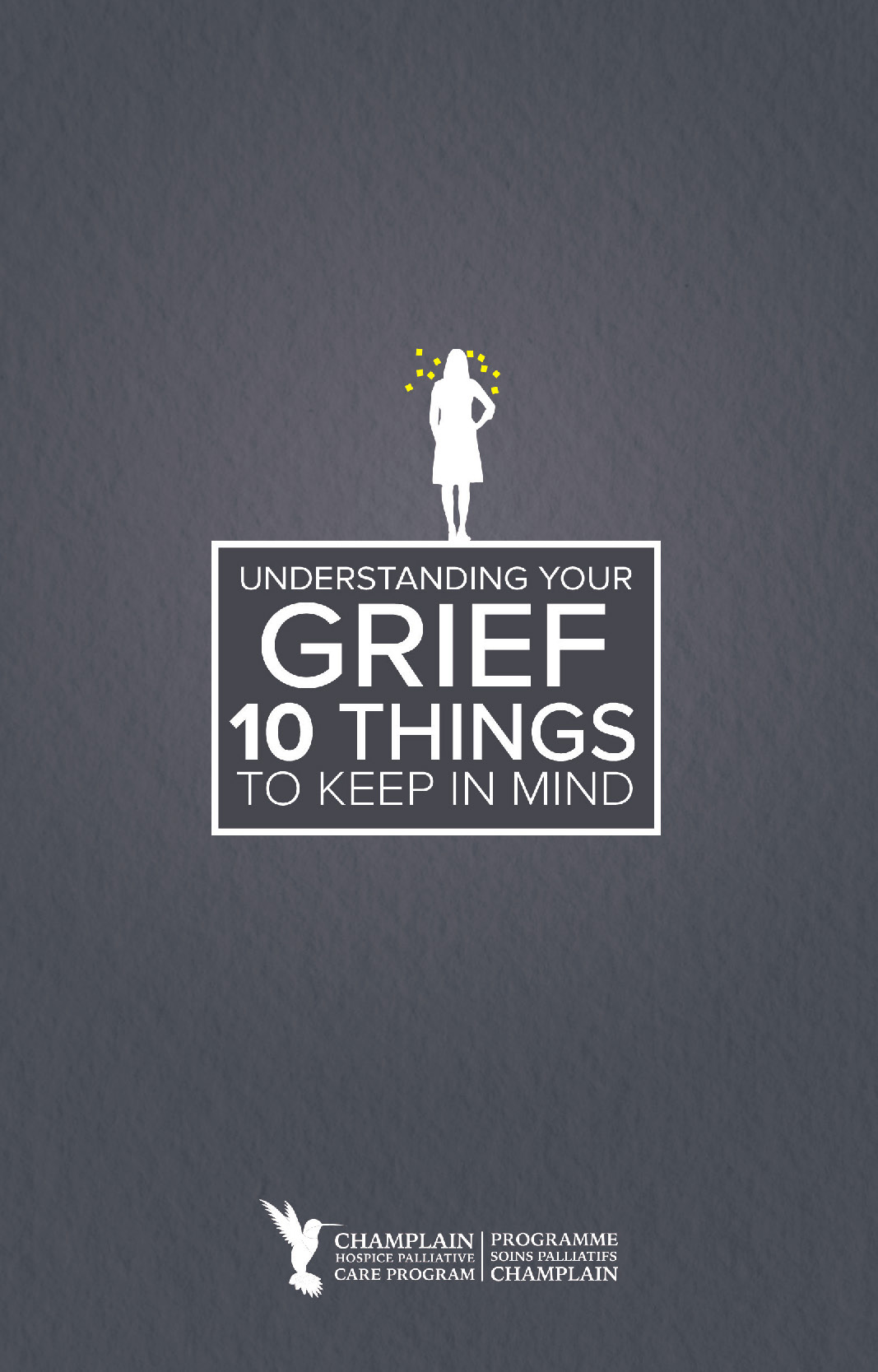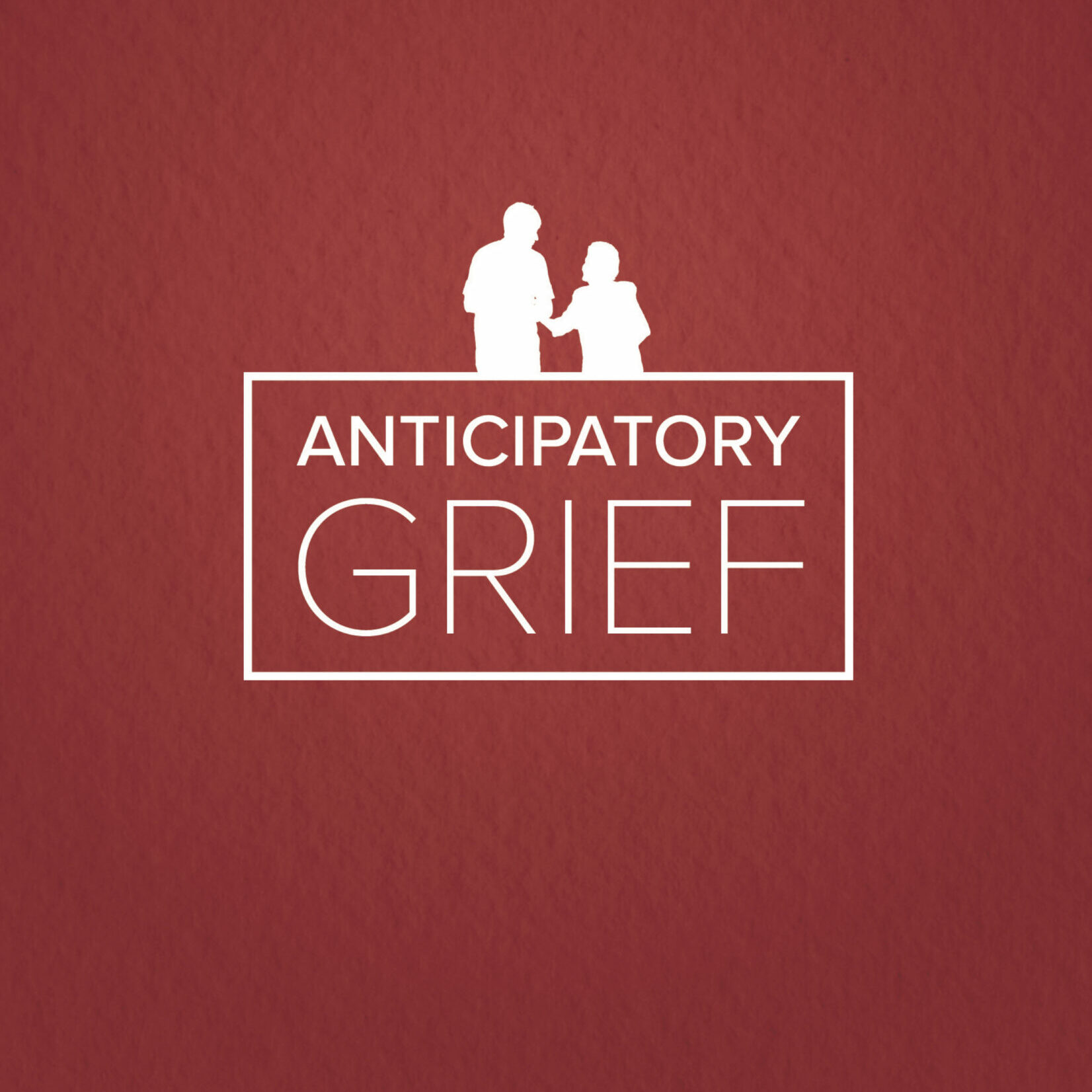
1. Grief affects your entire life.
When someone close to you dies, the feelings of loss and grief can be overwhelming.
You may find yourself wondering if anything will ever be the same again.
This May Help...
2. Grief is a natural process.
We feel sad when someone close to us dies because we feel we have lost a deep connection with someone who was a significant part of our world.
It may be comforting to think of grief as a consequence of living and loving. Grieving is a normal part of life and a natural response to the loss of a deeply meaningful relationship.

This May Help...

3. Everyone grieves differently.
After the death of someone you are close to, some may try to find comfort in openly expressing their sadness, while others may choose to try to control their emotions.
There is no right or wrong way to grieve. How you deal with your grief is influenced by your personality, your previous experience with loss, and the unique relationship that you had with the person who died.
This May Help...
4. Your social connections may change.
When you are grieving, you may especially want emotional support from others in your social circle.
However, sometimes people are uncomfortable with grief because of their own experiences and feelings about death. You may be disappointed to discover that some of your friends are not capable of providing the understanding and support that you want and expect from them.
Remember that all of the relationships in your life will be altered in some way after a major loss. Some will grow stronger, while others may fall away. During the grieving process, it’s normal for you to look at, change, or sometimes end certain relationships.
This May Help...
5. Children grieve too.
Understand that grieving a death may be a time of heightened emotions and low energy for you and your family. Children can be frightened by what they don’t understand, but they are also remarkably intuitive and sensitive to the moods and behaviour of the adults around them.
When a family member dies, children will look to the important adults in their lives for guidance on how to grieve. They may not talk about their thoughts and feelings of loss unless you do.

This May Help...

6. Grief can change you.
Grieving can bring a level of intense emotions that you may never have experienced before.
There is no right or wrong way to grieve. How you deal with your grief is influenced by your personality, your previous experience with loss, and the unique relationship that you had with the person who died.
This May Help...
7. The grieving process is unpredictable.
You may be part-way through the day and managing your grief relatively well. Then, suddenly and without warning, you are overwhelmed with sadness that washes over you like a wave.
The path of grief is never predictable. Your emotions can fluctuate day to day, hour to hour, or even minute to minute.

This May Help...
8. Grieving has no timeline.
You may find that your grief journey is taking longer than you expected. Maybe you’re frustrated by your progress and thinking you ought to be better than you are by now - whenever “now” is. Perhaps you’re also feeling pressure from the people around you to heal quickly and be back to being who you were before.
It’s certain that the loss of someone you are close to will continue to be part of your life. While the intensity of your sadness may recede with time, you will always experience moments when you think about, miss, and grieve for the person who died.
This May Help...

9. Self-care is all-important.
There are things that you can do to help yourself at this challenging time.
This may help...
10. Grief can be a spiritual journey of healing
The death of someone significant in your life may raise questions of meaning and purpose for you and prompt spiritual reflection. Profound change in life also gives an opportunity for growth and learning.
Spiritual and/or religious beliefs and practices may be a source of strength, comfort and support when facing painful, difficult and life changing experiences. Being a part of a community of like-minded people can help you feel less isolated and alone.

This May Help...
Related Materials
What to do when you anticipate the death of someone you are close to.


